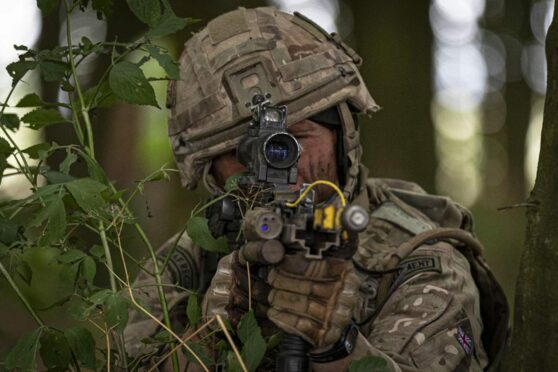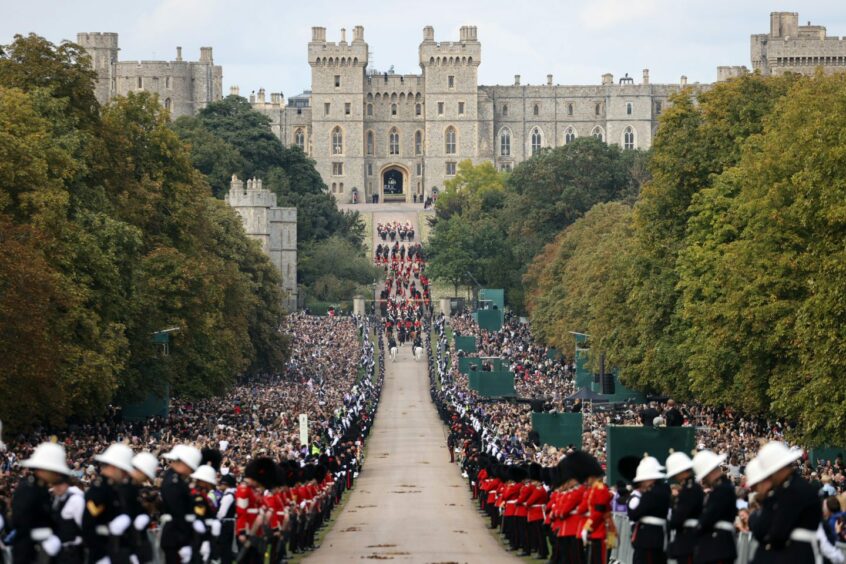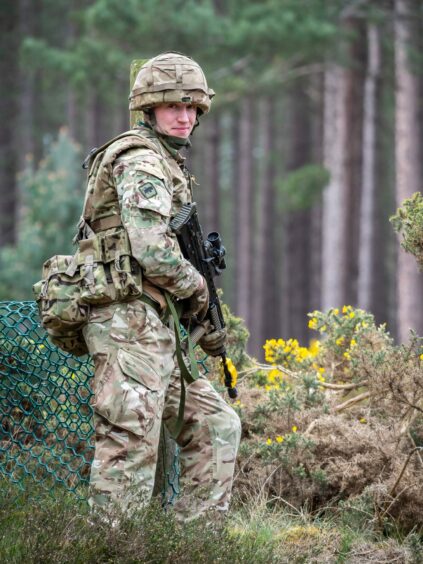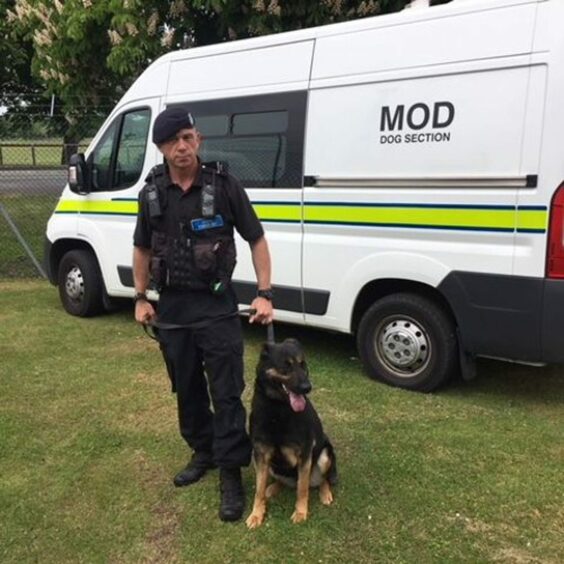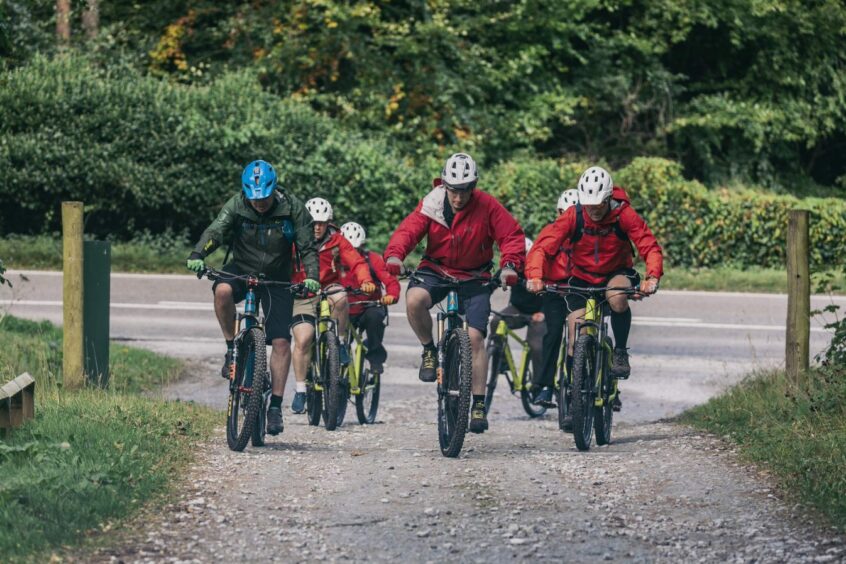We have all seen the television advertising campaigns looking for new recruits to join the Armed Forces, but what is it really like and why is it worth applying? Here we speak to a reservist from the Royal Air Force to tell us more…
-
Some Press and Journal online content is funded by outside parties. The revenue from this helps to sustain our independent news gathering. You will always know if you are reading paid-for material as it will be clearly labelled as “Partnership” on the site and on social media channels.
This can take two different forms.
“Presented by”
This means the content has been paid for and produced by the named advertiser.
“In partnership with”
This means the content has been paid for and approved by the named advertiser but written and edited by our own commercial content team.
When the nation came to a halt earlier this year to mark the passing of Her Majesty the Queen, former forestry manager James Watson* was in military uniform conducting official duties at the biggest televised event in history.
As a reservist with the Royal Air Force, James stood alongside his colleagues in the regular and reserve Armed Forces at the State Funeral of Queen Elizabeth II in September.
It was a career-defining moment and a day he will never forget.
James, 32, said: “There is always a sense of pride being an RAF reservist because you are doing your service to the country you live in, but there was no greater sense of pride than attending Her Majesty’s funeral.
“She passed during our training camp and I wanted to volunteer to be on duty at the funeral. We were on the periphery of the formal ceremonial duties.
“Our Squadron was route-lining during the procession. It was emotional.
“That’s why you sign up in the first place – to serve Queen and country.”
It’s exactly three years this month [January 2023] since James joined the RAF Regiment – part of the Combat & Readiness Force – as a reservist, and since then he has not looked back.
The father-of-one was working as a forest and asset manager when he felt he craved more excitement. That’s when he applied for a part-time reservist job. It has brought him many exciting challenges, despite signing up and completing his training during the Covid pandemic.
Why I applied for RAF Reservist job
Now James is in a new role as an operations manager for the Ministry of Defence’s Guard Service and continues to be fully supported by his employer when performing his reservist duties.
James explains why he applied: “I wanted something else to do with my spare time; a new challenge and something completely new to focus on. The other motivation was fitness and I wanted to step out of my comfort zone.
“I had seen the RAF Reserves advertising before, but I put it off, then I decided to go for it.”
There are several stages of selection, just like in the RAF regulars, and not everyone passes. Selection tests, in fitness and aptitude, will rank you and match you to the newly formed professions. Find out more about applying to the RAF Reserves.
James was assigned to the 2622 Highland Squadron RAF Reserves based at RAF Lossiemouth as a Regiment Gunner.
When asked to sum up his last three years in this part-time, paid post, he said: “Honestly, it has been fantastic.”
What is the RAF Reserves training like?
“For the first 18 months I was going through my initial training and then ‘trade training’ with RAF Regiment. As a Regiment Gunner we fired a range of weapons systems from pistols and rifles to GPMGs (general purpose machine guns),” explains James.
Firing weapons on the live range for the first time is one of many highlights of his experience as a reservist, so far. James admits he “absolutely loved it” because it was “very exciting and such an adrenaline rush”.
Another high point was taking part in field exercises over four days as it “brought together all the skills we had learnt during the last year of training and simulated real scenarios”. Dressed in full combat equipment, James and the reservists spent four days and nights working in CAGE (complex air-ground environments) in a remote part of Scotland.
It is a common misconception that reservists do not complete the same intense training as the regulars, but this is not true, for the reserves go through the same mentally and physically challenging training programme as the regulars – and they are paid for their time. The only difference is that reservists train for a minimum of 27 days of the year.
Could I be deployed?
So far, James has not been posted abroad but is looking for deployment opportunities in 2023. As a father to a young son, the reservist could be called up on mandatory deployments.
“Until then, voluntary deployments allow me decide what I can commit to around other family and work commitments, so I am able to pick and choose what I do and when I do it, which is ideal,” he added.
Travelling abroad has happened though, for another type of gruelling physical challenge – the largest multiple-day marching event in the world!
James explained: “We went to the Netherlands to do The Nijmegen Marches. We marched 100 miles over four days in full kit and in hot temperatures in the summer. Military personnel and civilians from all over the world took part, and I really enjoyed it.”
Should I sign up for an RAF Reservist job?
James’ life is non-recognisable from what it was like a few years ago. He’s gone from being a forestry manager to overseeing the MOD’s Guard Service and conducting RAF reservist duties in his spare time, in three short years.
Now, given his life-changing experience as a reservist and how much he enjoys his part-time reservist job, James has some advice for those who are considering signing up: “Just give it a go, you have nothing to lose. There’s no harm in having a conversation. I haven’t looked back because you pick up so many transferrable skills in everything from leadership to risk management.
“I certainly have no regrets – it’s been fantastic.”
Today, along with his reservist and regular colleagues, James continues to serve King and country and is very much hoping to attend another worldwide event soon, the coronation of King Charles III on May 6.
Reasons for joining the RAF Reserves
Flight Sergeant Andy Stephens is part of the team tasked with recruiting more reserves. As a former regular with the RAF, he also knows all about what an RAF Reservist job involves. Andy said:
We are looking for all genders, aged from 18 to 54 to join who want to do something different with their spare-time, wish to better themselves and make a difference. Individuals need to be reasonably fit (you don’t have to be Olympic standard), good communicators, work well as an individual and in a team, follow direction, be self-disciplined and motivated to achieve goals.
“People should become a reservist to gain or improve confidence, leadership and communication skills, work with like-minded people to achieve tasks. Reservists undertake assignments that are unavailable in any other job. They have respect for all personnel for who they are (we all bring something to the table regardless of experience).
“The majority of people have a preconceived ideas of what the reserves are like and do and they are probably far from the actual reality. We recommend people get in touch and attend either a face-to-face presentation or online to gain a better understanding.”
The RAF is recruiting reserves at RAF Lossiemouth now.
Do you have what it takes to sign up?
Here are just some reasons to sign up for an RAF Reservist job today:
- Gain qualifications
- Enjoy competitive benefits
- Undertake Adventure Training
- Experience specialist training
- Travel the world – and all while being paid!
Find out more about what becoming an RAF Reserve involves. Discover what roles 2622 Highland Squadron can offer and about what the recruitment process is like. Ask about what to expect when you are qualified and the financial benefits. Find out about opportunities to mobilise at home and abroad, before you apply.
*Name has been changed to protect the identity of the RAF reservist and MOD employee.
